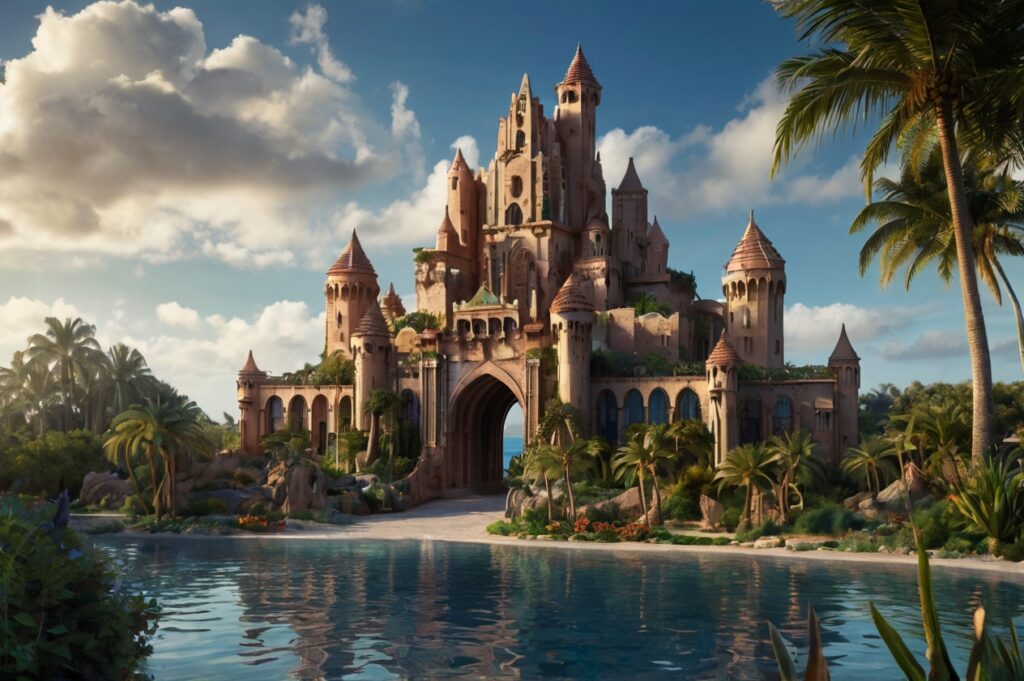
For centuries, the mystery of Atlantis has fascinated humanity.
Was it a real place—a lost advanced civilization—or simply a fictional tale meant to teach a lesson?
From ancient myths to modern scientific exploration, the story of Atlantis continues to spark curiosity and debate.
In this article, we’ll explore the myth of Atlantis, examine scientific theories, and uncover the possible truths behind this enduring mystery.
The Myth of Atlantis
The story of Atlantis has fascinated people for centuries, but where did it come from?
The tale first appeared in the writings of the ancient Greek philosopher Plato around 360 BCE.
In his dialogues Timaeus and Critias, Plato described Atlantis as a highly advanced and powerful civilization that met a sudden and catastrophic end, sinking into the ocean “in a single day and night of misfortune.”
But here’s the big question: Was Plato sharing a historical account, or was Atlantis simply a story meant to teach a lesson?
- Read also: Navigating the Sands of Time: An Ancient Chinese Civilization Timeline
- Read also: Unveiling the Legacy: Ancient African Kingdoms Timeline
Key Elements of the Myth
The legend of Atlantis is rich with fascinating details that have captivated people for generations.
Here are the main elements of this mysterious story:
An advanced civilization
Atlantis was described as a society far ahead of its time.
It had grand architecture, cutting-edge engineering, and a booming economy.
Some accounts even paint it as a utopia, a place where everything was well-organized, prosperous, and harmonious—at least for a while.
Its mysterious location
Plato wrote that Atlantis was located “beyond the Pillars of Hercules,” which most historians believe refers to the Strait of Gibraltar.
If true, this would place Atlantis somewhere in the Atlantic Ocean.
But over the years, people have speculated wildly about its location, with theories suggesting places like the Mediterranean, the Caribbean, or even Antarctica.
A sudden, tragic end
One of the most dramatic parts of the Atlantis story is its sudden destruction.
Plato claimed the island sank into the sea in a single day and night, a result of divine punishment for the moral corruption of its people.
This mysterious disappearance has sparked countless theories, from natural disasters like tsunamis or volcanic eruptions to purely symbolic interpretations of human arrogance and decline.

Scientific Theories and Archaeological Evidence
While Atlantis may seem like pure legend, various scientific theories and discoveries suggest there could be a kernel of truth behind the tale.
Geological theories
The role of volcanic eruptions
One of the most well-known theories connects Atlantis to the volcanic eruption on the island of Thera (modern-day Santorini) around 1600 BCE.
This massive eruption devastated the advanced Minoan civilization in the Mediterranean, destroying much of their culture and infrastructure.
The eruption also caused huge tsunamis, which could match the descriptions of Atlantis being swallowed by the sea.
Shifting continents
Some scientists wonder if changes in Earth’s tectonic plates could explain the story.
These plates move very slowly, but over millions of years, they can cause landmasses to sink or rise.
While it’s unlikely that Atlantis sank as quickly as Plato described, small, dramatic shifts—like earthquakes—might have inspired similar stories.
Rising seas after the ice age
At the end of the last Ice Age, about 11,700 years ago, global sea levels rose as glaciers melted.
This would have submerged many low-lying areas around the world, possibly giving rise to myths of lost civilizations.
It’s easy to imagine how ancient people might have turned these events into stories like Atlantis, blending fact with fiction.

Archaeological discoveries
Underwater cities
Underwater explorations have uncovered ancient ruins that fuel speculation about Atlantis.
For example, submerged structures off the coast of Yonaguni, Japan, resemble step-like pyramids, though scientists debate whether they are natural formations or man-made.
In 2001, researchers discovered ancient ruins off the coast of India’s Gulf of Cambay, dating back around 9,000 years.
While not directly linked to Atlantis, such findings show how much of ancient human history lies beneath the sea.
Advanced civilizations
The Minoans and Mycenaeans are often cited as real-life inspirations for Atlantis.
Both civilizations were advanced, with sophisticated art, engineering, and trade networks.
The collapse of these societies, particularly the Minoans after the Thera eruption, mirrors aspects of the Atlantis myth.
Mythological interpretations
Not all theories about Atlantis rely on physical evidence.
Many scholars argue that the story serves a symbolic or cultural purpose rather than being a historical account.
A symbolic lesson
Some argue that Plato never intended for Atlantis to be taken literally.
Instead, it might have been a cautionary tale about the dangers of arrogance, greed, and moral corruption.
- The story of Atlantis’s sudden destruction could represent the consequences of defying higher powers or losing sight of virtue.
- By sharing this tale, Plato might have been encouraging his audience to reflect on the values that lead to a strong and just society.
A cultural memory
Others suggest that Atlantis could be a distant memory of a real event, distorted over time as it was passed down through generations.
- Natural disasters like tsunamis, earthquakes, or volcanic eruptions might have inspired stories about lands disappearing beneath the sea.
- These events, remembered through oral traditions, could have eventually been woven into myths like Atlantis by the time Plato recorded them.

- Read also: Unveiling the Mysteries: The Rise and Fall of the Mayan Civilization
- Read also: The Rise and Fall of the Aztec Empire: A Historical Overview
Final Thoughts
The mystery of Atlantis blurs the line between myth and reality.
While some theories offer tantalizing clues, there is no definitive proof that Atlantis ever existed.
Whether it was a real place, a symbolic story, or a mix of both, its enduring appeal lies in its ability to spark our imagination.
Atlantis reminds us of humanity’s endless curiosity and the importance of learning from the past. Perhaps that’s the real treasure of this legendary lost civilization.



